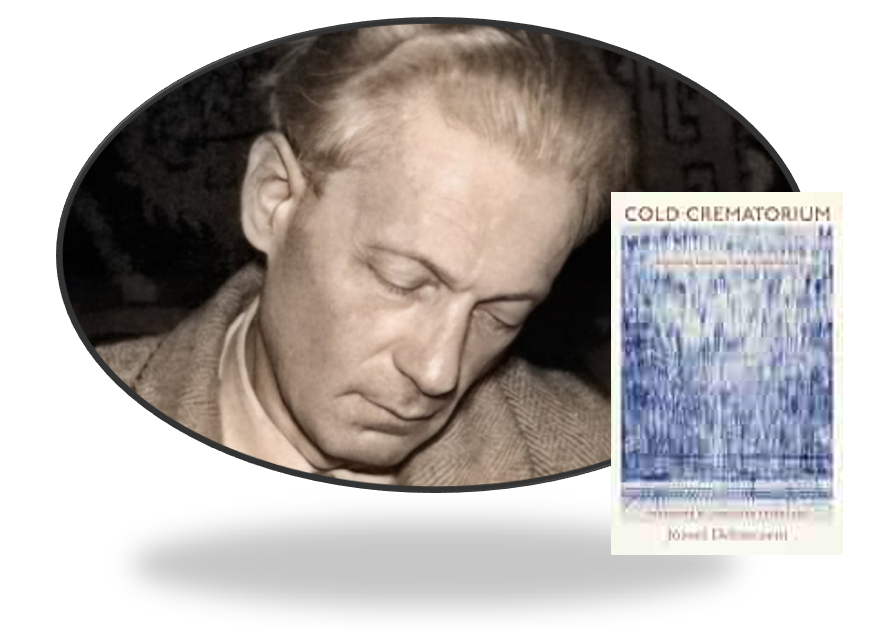Cold Crematorium

József Debreczeni’s Cold Crematorium: Reporting from the Land of Auschwitz offers a stark and deeply moving firsthand account of the horrors of the Holocaust. Originally published in 1950 and recently translated into English, this memoir provides a vital, personal perspective on the brutal realities of life within the Nazi concentration camps, particularly the sub-camp of Dörnhau, a labor camp located near Auschwitz. Debreczeni, a Hungarian journalist, poet, and survivor of the Holocaust, recounts his time in the camps with a clarity and intensity that brings the atrocities of the period into sharp focus.
At the core of Cold Crematorium is Debreczeni’s meticulous documentation of the physical and psychological toll of life in the camp. The title itself is deeply symbolic, reflecting the inhumanity and coldness of the crematoriums in Auschwitz, where countless victims were killed and incinerated. The memoir is not just an individual story of survival but a chilling window into the broader machinery of death that operated within Nazi concentration camps. The author’s portrayal of the camp’s infrastructure—the forced labor, the inescapable hunger, the random executions, the relentless brutality of guards, and the moral decay among the prisoners—strips away any illusion of heroism or glorification. Instead, Cold Crematorium offers an honest, often raw exploration of the dehumanizing effects of concentration camps on both victims and perpetrators.
What makes Debreczeni’s narrative so powerful is its unflinching honesty. The memoir is devoid of sensationalism and melodrama, which is a departure from some other Holocaust accounts that lean heavily on emotional appeals. Instead, Debreczeni’s prose is matter-of-fact and precise, painting a picture that is both deeply personal and universal. His writing pulls no punches, describing the conditions in Auschwitz and the psychological toll the camp took on its inhabitants in a way that forces readers to confront the sheer magnitude of human suffering. He doesn’t shy away from acknowledging the complexities of the camp’s social hierarchies, including how some prisoners collaborated with the Nazis out of fear or a desire to survive, which adds a layer of moral ambiguity that many survivors’ accounts omit.
The book is also notable for its psychological depth. Debreczeni delves into the emotional and mental strain of living in the constant shadow of death, grappling with despair, confusion, and the survival instinct. The experiences of prisoners were not just physical but profoundly psychological, and Debreczeni’s reflections on this are incredibly powerful. He explores the ways in which the camp system deliberately broke down individuals’ sense of self-worth, forcing them to operate as mere cogs in the Nazi machine. Yet, amidst the degradation and suffering, there are also glimpses of resilience—moments where prisoners find ways to maintain their humanity, even in the most hopeless of situations.
One of the most compelling aspects of Cold Crematorium is its focus on the lived experiences of the victims, rather than just on the perpetrators. By providing a detailed account of his time in the camps, Debreczeni shifts the focus to the strength and survival of the people who lived through the Holocaust. He chronicles the struggle to find meaning, however small, in a world where everything was designed to destroy the individual’s sense of self. The narrative’s grim realism and focus on individual lives make the book more than just a historical document—it becomes a meditation on human endurance and moral survival in the face of unimaginable suffering.
Critics have hailed Cold Crematorium for its contribution to Holocaust literature, particularly in terms of its unadorned storytelling and factual rigor. The Wall Street Journal has called the memoir “a crucial contribution to Holocaust literature,” emphasizing that it offers a broader understanding of “life” in Auschwitz, moving beyond the immediate horrors to show the psychological and social collapse caused by such systemic evil. The Guardian also praises the memoir for its “harrowing detail,” noting that it stands out in the genre for its lack of melodrama and its commitment to factual accuracy, which allows the horrors to speak for themselves without embellishment. The careful documentation of these experiences in Cold Crematorium makes it an essential read for anyone wishing to understand the true scope of the Holocaust from a survivor’s perspective.
In conclusion, Cold Crematorium is a poignant, brutally honest memoir that adds an essential voice to the corpus of Holocaust literature. József Debreczeni’s writing is a testament to the human capacity for endurance, but it also serves as a reminder of the overwhelming cruelty of war and totalitarian regimes. By focusing on the daily lives of those caught in the machinery of death, Debreczeni provides a deeper understanding of the Holocaust, not only as a historical event but as a profound moral and psychological catastrophe. His unvarnished narrative stands as a powerful reminder of the importance of remembering history with clarity and honesty, ensuring that the tragedies of the past are never forgotten.



